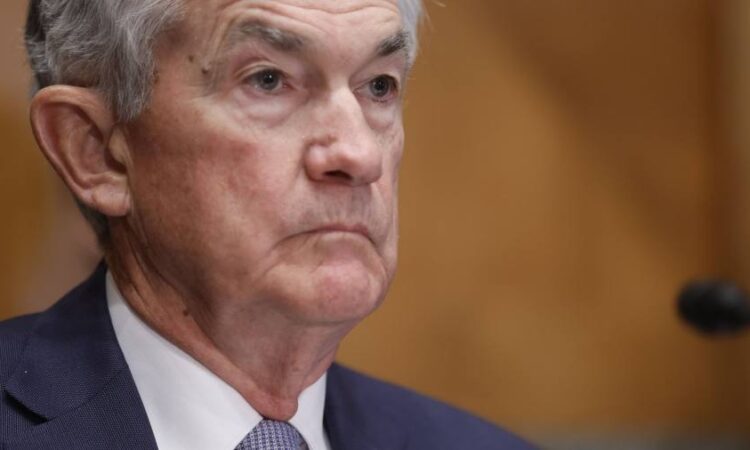
US short-term government bond yields soared to levels last seen in 2007 and stocks fell a day after Federal Reserve chair Jay Powell warned that interest rates would peak at a higher level than previously expected.
The two-year Treasury yield, which is particularly sensitive to short-term monetary policy expectations, rose 0.14 percentage points to 4.71 per cent. Yields rise when prices fall.
Wall Street equities also extended steep falls from the previous day. The blue-chip S&P 500 slid 1.1 per cent, and the Nasdaq Composite dropped 1.7 per cent.
Those sharp moves came after Powell said on Wednesday that the US central bank had “some ways to go” in its quest to tame inflation, and that the “terminal” point at which interest rates would top out would be higher than anticipated.
His comments followed a decision by the Fed’s rate-setting panel on Wednesday to lift borrowing costs by 0.75 percentage points for the fourth consecutive time, taking the central bank’s target range to 3.75 per cent to 4 per cent.

Traders are now betting that interest rates in the world’s largest economy will hit 5.1 per cent by May, compared with 5 per cent before Wednesday’s Fed meeting, according to trading in federal funds futures.
Projections of higher interest rates helped the dollar index, which tracks the greenback against six peers including the euro and sterling, to strengthen 1.4 per cent on Thursday.
Mike Zigmont, head of trading and research at Harvest Volatility Management, said Powell’s statements were likely to snuff out investor optimism that had helped US share indices rise over the past fortnight.
“We just set a new sentimental tone and it’s bearish. I don’t know if it’s going to get ugly but optimism is out the window for a while.”
Higher interest rates tend to weigh on stock markets because they reduce the relative value of companies’ future earnings. The Fed’s aggressive cycle of increases this year has also raised fears that the economy will be pushed into recession and hit demand.
A closely watched signal of recession risk in Treasury markets hit a fresh high on Thursday. Longer-term debt normally yields more than short-term notes, but the yield on two-year Treasuries hit a level 0.59 percentage points higher than the 10-year yield, the most extreme “inversion” of the yield curve since the early 1980s. A yield curve inversion has preceded every US recession for the past 50 years.
In contrast to the US market, London’s FTSE 100 finished the day 0.6 per cent higher after the Bank of England said it expected interest rates in the UK to peak at a lower level than markets had previously anticipated. The BoE on Thursday lifted rates 0.75 percentages points to 3 per cent.
The pound slipped following the news, trading 1.9 per cent lower against the dollar at $1.118. Traders now expect UK interest rates to reach just above 4.6 per cent in September, compared with 4.75 per cent before the central bank’s announcement
Some analysts, however, continued to believe the central bank would have to be more aggressive. Ruth Gregory, senior UK economist at Capital Economics, predicted rates would reach 5 per cent, with inflation proving “stickier than the bank expects”.
Europe’s regional Stoxx 600 fell 0.9 per cent.
Asian equities fell sharply after China’s National Health Commission quashed rumours that the country was preparing to ease its strict zero-Covid approach.
“[We must] work to control sudden outbreaks of the pandemic . . . as quickly and at as low cost as possible,” the NHC said.
The statement from China’s top health authority sent domestic stocks lower on Thursday, with the benchmark CSI 300 and Hong Kong’s Hang Seng index down 0.8 per cent and 3.1 per cent respectively.





